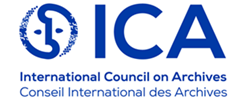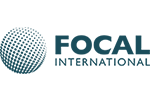2019 FIAF Symposium: Call for Papers
From the Past to the Future of Film Archives
2019 FIAF Congress, Lausanne, 8-9 April 2019
The call for papers is available as a PDF file in English, French, and Spanish.
* New proposal submission deadline: 15 December 2018 *
Film archives are currently in a phase of transition, due in particular to the use of digital technologies at every level of their activity. The generalization of new techniques for restoring works, and new ways of distributing, promoting, cataloging, and managing these objects has important repercussions for the work of archivists in every field. This transformation is so important that it may eventually affect the very mission of film archives and the form they take.
This symposium will be an opportunity to discuss together the central questions posed by this transition, placing it in a dual perspective: that of the PAST, looking back to the history of archives, institutions, practices, and values, and that of the FUTURE, attempting to anticipate not only the problems that will need to be resolved, but also the contributions of future techniques and practices related to the cultures of memory and heritage.
An analysis of the context in which certain archives were created, as well as their evolution through the years, could help us foresee the future of our institutions and better imagine their development. For that reason, the symposium aims to encourage thoughtful proposals that attempt a transversal approach taking into account more than just the past or the future.
We hope that proposals for this symposium will, in this perspective, also be attentive to the diversity of film archives, for example at the institutional level (archives created in connection to film clubs and now confronting their disappearance; within universities; at the impetus of governments; etc.) or geographically (have digital technologies encouraged the emergence of new archives linked to a particular place or group; have they created problems related to the reconfiguration of archives that lack sufficient resources, or that have singular formats or corpuses to manage).
Finally, contributions should address what characterizes the missions of archives, as they were defined during the photochemical era and as they are evolving in the digital age.
Following are few examples of possible themes - among many others:
- The different origins of archives (private, municipal, state, etc.; autonomous structure or part of a larger one - museum, library, national archives, national film center, etc.), and the impact of those differences on the development and nature of the missions of film archives.
- Establishing archives from the past to the future, in particular questions relating to the voluntary deposits that formed the basis of many archives and that are tending to disappear in the digital age, as well as the evolution of legal and contractual deposits.
- The enhancement of collections, the programming and distribution of heritage films within film archives: how have those activities evolved over the years, and new challenges in the internet and digital era.
- The evolution of relations with rights holders, historical mistrust that has become mutual understanding, and, in the future, the risk of the blocking of use of collections by those same rights holders.
- The history and perspectives of acquisitions policies for photochemical films and digital films: selection criteria and technical possibilities.
- Constantly evolving conservation strategies: the evolution of knowledge and practices in the photochemical and digital domains.
Building databases: from the multiplicity of tools for describing collections accumulated over time to the desire to merge everything into a single tool held at one or several institutions. - The challenges of cataloguing with regard to digital objects: identification, localization, metadata, continual creation of new formats, connection to physical objects.
- The evolution of documenting restoration processes.
- The new technical possibilities for restoration and the questions they raise about restoration ethics.
- Restoration and digitization: confusing the terminology and new identification difficulties for archivists.
- Colliding generations, fields in transition: knowledge transfer and new practices.
PROPOSALS
Individual contributions should last from fifteen to twenty minutes (excluding questions). Please submit your proposal by summarizing the main arguments of your contribution (in approximately 150 words) and provide a short biography.
Proposals must be presented in one of the three languages of the symposium and the FIAF (English, French, or Spanish).
This symposium is an opportunity for discussion and sharing. Therefore, proposals that go beyond mere presentation are strongly encouraged. During the submission and feedback period, symposium organizers and the expert committee may provide candidates with comments and suggestions in order to develop a symposium program that is both complex and compact. Some proposals may be recommended for other events during the congress, while others may be refused.
Proposals must be submitted to this address: symposium19@cinematheque.ch
TIMELINE
New proposal submission deadline: 15 December 2018
Response from organizers: 31 January 2019
SYMPOSIUM ORGANIZATION
Cinémathèque suisse and Department of Film History and Aesthetics of the University of Lausanne (UNIL)
EXPERT COMMITTEE
Chicca Bergonzi, Head of Programming and Distribution, Cinémathèque suisse
Christophe Dupin, Senior Administrator, FIAF
Caroline Fournier, Head of the Film Department, Cinémathèque suisse
Haden Guest, Director, Harvard Film Archive
Laurent Le Forestier, Professor, University of Lausanne
Benoît Turquety, Professor, University of Lausanne
Jon Wengström, Head of Archival Film Collections, Svenska Filminstitutet
2019 FIAF Symposium: Call for Papers
From the Past to the Future of Film Archives
2019 FIAF Congress, Lausanne, 8-9 April 2019
The call for papers is available as a PDF file in English, French, and Spanish.
* New proposal submission deadline: 15 December 2018 *
Film archives are currently in a phase of transition, due in particular to the use of digital technologies at every level of their activity. The generalization of new techniques for restoring works, and new ways of distributing, promoting, cataloging, and managing these objects has important repercussions for the work of archivists in every field. This transformation is so important that it may eventually affect the very mission of film archives and the form they take.
This symposium will be an opportunity to discuss together the central questions posed by this transition, placing it in a dual perspective: that of the PAST, looking back to the history of archives, institutions, practices, and values, and that of the FUTURE, attempting to anticipate not only the problems that will need to be resolved, but also the contributions of future techniques and practices related to the cultures of memory and heritage.
An analysis of the context in which certain archives were created, as well as their evolution through the years, could help us foresee the future of our institutions and better imagine their development. For that reason, the symposium aims to encourage thoughtful proposals that attempt a transversal approach taking into account more than just the past or the future.
We hope that proposals for this symposium will, in this perspective, also be attentive to the diversity of film archives, for example at the institutional level (archives created in connection to film clubs and now confronting their disappearance; within universities; at the impetus of governments; etc.) or geographically (have digital technologies encouraged the emergence of new archives linked to a particular place or group; have they created problems related to the reconfiguration of archives that lack sufficient resources, or that have singular formats or corpuses to manage).
Finally, contributions should address what characterizes the missions of archives, as they were defined during the photochemical era and as they are evolving in the digital age.
Following are few examples of possible themes - among many others:
- The different origins of archives (private, municipal, state, etc.; autonomous structure or part of a larger one - museum, library, national archives, national film center, etc.), and the impact of those differences on the development and nature of the missions of film archives.
- Establishing archives from the past to the future, in particular questions relating to the voluntary deposits that formed the basis of many archives and that are tending to disappear in the digital age, as well as the evolution of legal and contractual deposits.
- The enhancement of collections, the programming and distribution of heritage films within film archives: how have those activities evolved over the years, and new challenges in the internet and digital era.
- The evolution of relations with rights holders, historical mistrust that has become mutual understanding, and, in the future, the risk of the blocking of use of collections by those same rights holders.
- The history and perspectives of acquisitions policies for photochemical films and digital films: selection criteria and technical possibilities.
- Constantly evolving conservation strategies: the evolution of knowledge and practices in the photochemical and digital domains.
Building databases: from the multiplicity of tools for describing collections accumulated over time to the desire to merge everything into a single tool held at one or several institutions. - The challenges of cataloguing with regard to digital objects: identification, localization, metadata, continual creation of new formats, connection to physical objects.
- The evolution of documenting restoration processes.
- The new technical possibilities for restoration and the questions they raise about restoration ethics.
- Restoration and digitization: confusing the terminology and new identification difficulties for archivists.
- Colliding generations, fields in transition: knowledge transfer and new practices.
PROPOSALS
Individual contributions should last from fifteen to twenty minutes (excluding questions). Please submit your proposal by summarizing the main arguments of your contribution (in approximately 150 words) and provide a short biography.
Proposals must be presented in one of the three languages of the symposium and the FIAF (English, French, or Spanish).
This symposium is an opportunity for discussion and sharing. Therefore, proposals that go beyond mere presentation are strongly encouraged. During the submission and feedback period, symposium organizers and the expert committee may provide candidates with comments and suggestions in order to develop a symposium program that is both complex and compact. Some proposals may be recommended for other events during the congress, while others may be refused.
Proposals must be submitted to this address: symposium19@cinematheque.ch
TIMELINE
New proposal submission deadline: 15 December 2018
Response from organizers: 31 January 2019
SYMPOSIUM ORGANIZATION
Cinémathèque suisse and Department of Film History and Aesthetics of the University of Lausanne (UNIL)
EXPERT COMMITTEE
Chicca Bergonzi, Head of Programming and Distribution, Cinémathèque suisse
Christophe Dupin, Senior Administrator, FIAF
Caroline Fournier, Head of the Film Department, Cinémathèque suisse
Haden Guest, Director, Harvard Film Archive
Laurent Le Forestier, Professor, University of Lausanne
Benoît Turquety, Professor, University of Lausanne
Jon Wengström, Head of Archival Film Collections, Svenska Filminstitutet













